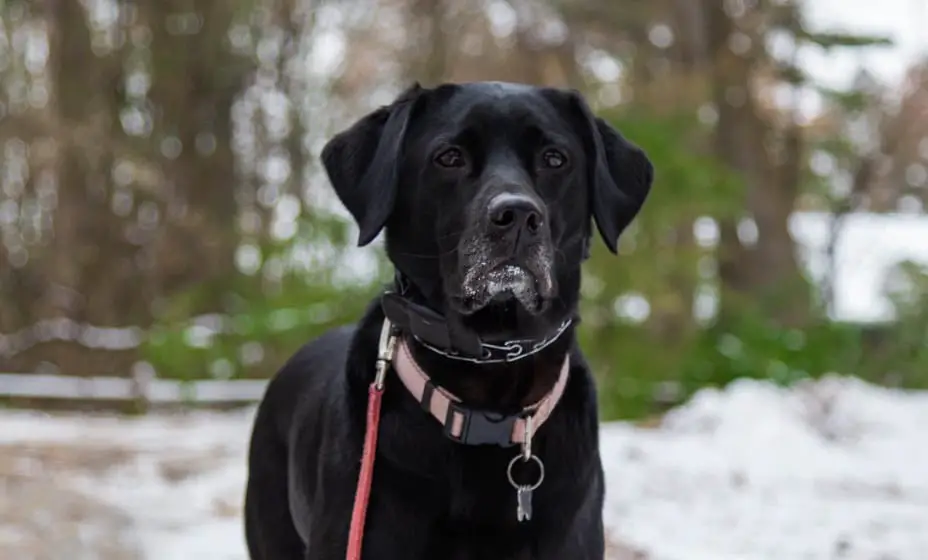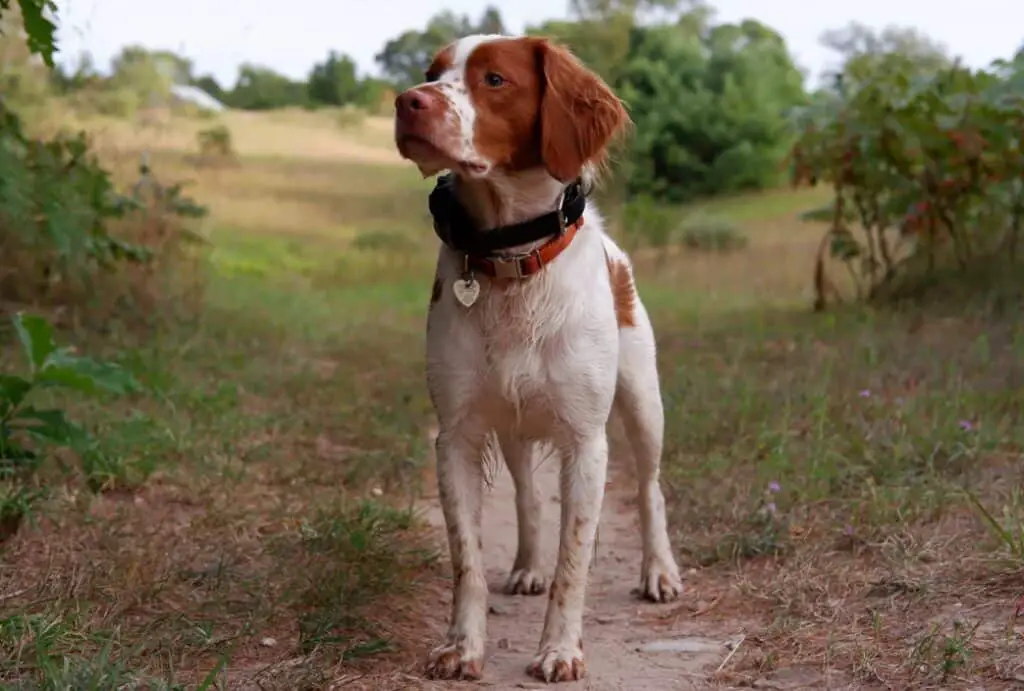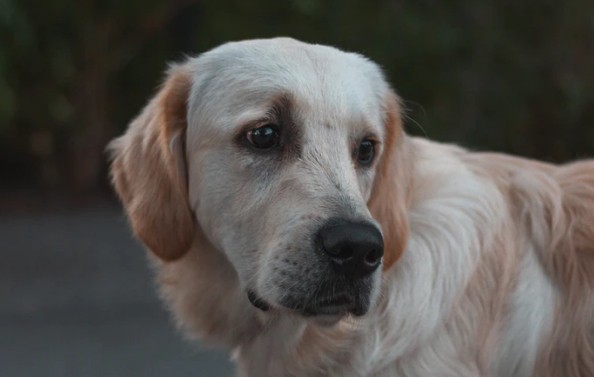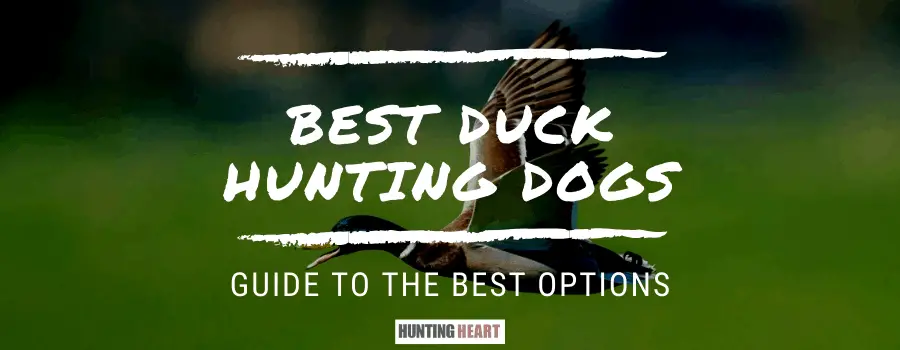As an Amazon Associate I earn from qualifying purchases.
Our Associate portal can be found here
Hunting ducks is an activity that many love and is just pure fun. You can of course hunt ducks by yourself but then you’re missing out on 50% of the fun, but most hunters prefer to have a four-legged friend to help with the fallen birds.
When you are considering the best dog for duck hunting, you must be familiar with the most hunt-worthy dog breed. The best kind of dog to have alongside you in a duck blind possesses capabilities other than the natural canine instincts to hunt.
Since dogs were first bred from wolves, they have been hunting with humans for 20,000 years. Sporting groups of dog breed have been specially bred for protection and companionship during a hunt. Also, there are some breeds considered better than others for duck hunting.
Are Some Dog-Breeds Better at Duck Hunting than Others?
Over the centuries, dog breeding was important for various purposes. One such thing is to retrieve fallen ducks during and breed evolution is the leading cause for this.
A particular dog breed will excel at being a guard dog and others for police work. This, however, requires impeccable tracking abilities. Some dogs make excellent therapy or guide dogs for the impaired. Others work magic when it comes to sniffing out drugs or weapons.
Yet there are breeds of dogs that have the skill of retrieving anything and bringing it back to you. Toys and sticks are mostly use for this purpose. This amazing talent has been spit polished and perfected by the elite number of the top duck hunting dog breeds. They are tasked with retrieving carcasses and bringing them back to your concealed blind.
There are other personalities and physical traits displayed by a trained duck hunting dog specific to its breeding. They include sitting quietly beside you, even through loud rifle shots, until a duck or other fowl have fallen.
A competent duck hunting dog walks alongside you on the trail. It should be an excellent swimmer when it comes to retrieving ducks that fall in rivers or ponds. Dog breeds that befit the retrieving of fowl have soft mouthparts for grasping without crushing, crunching down, or tearing the bird in that process.
How Are Master Retriever Traits Tested for Breeding in Dogs?
Breed data from NAHRA collected for over thirty years, enables the testing of retrieving capabilities in dogs for breeding purposes. Hunting scenarios are realistically reenacted during these trials. They involve measuring canines for hunting standards and providing for year-long training in duck retrieval.
Other stakeholders, such as the American Kennel Club, took up the hunt test methods that have resulted in breeds competitively nurtured into the best duck hunting dogs.
Are Retrievers the Top Dog Breeds for Hunting Ducks?
Knowing which breed works efficiently is vital since hunting dogs may come and go. The best duck retriever could be the one lounging on your front porch right now barking at passersby. The most capable gun dog is also a cold water swimmer. It is helpful when the duck hunting in Florida season dictates you leave the waterfowl for the upland birds.
The best dog breeds for training to hunt ducks possess high intelligence, alertness, and energy levels, during their induction.
History of Duck Hunting Retrievers
Hunting forbears did their best to develop traits in dogs for their duck retrieval requirements. It involved mixing and matching canine breeds from bloodhounds to collies. Their single goal was to achieve a breed of dog with the physical and personality traits to retrieve ducks. The result came with breed standards that are present today but were nonexistent 100 years ago.
For the most part, pioneer breeders of good duck hunting dogs were successful in creating a variety of new retrievers. Each was equipped with the breed’s strengths, defining characteristics, weaknesses, and dedicated owners. The background ancestry of the most proficient duck dog breeds contains the now extinct Tweed Water Spaniel, and the St. John’s Water Dog. The retriever origins however remain obscure.
The Newfoundland partly provides swimming prowess in the best duck hunting dog, while scenting skills originated from spaniels and hounds. The curly-coated breeds prominent in gun dogs come from the poodle. You can trace their origins before the invention of firearms. This retriever riddle also contains Setters, which at one time were natural retrievers. On the other hand, other dog breeds make these breeds conversant with duck hunting.
Which Are the Best Duck Hunting Dogs?
All dogs are natural-born hunters, but it takes the right mix of genes to assist you in duck hunting. With the correct breeding, where both parents have earned competition titles to prove their hunt-worthiness. Training follows, and canine puppies get the chance to grow into the best duck hunting dog.
The success of the retriever is inarguable when the debate comes down to the best duck hunting dogs. Various retriever variations holding world records for over 23 years.
In no particular order, the following exposition aims to review breeds of duck hunting performers. Focusing on their attributes, respective histories, and factors we show you why they are your best fowl retrievers.
Labrador Retrievers

The Labrador retriever is a proven fowler dog, a great upland, on-water duck hunter as well as a family dog. Enamored with a loving disposition and a friendly demeanor, Labradors have an excellent IQ. They are also valuable for their aptitude for training.
Labradors are efficient simmers, and they don’t forget the location where a downed bird fell. They can handle tough conditions and revel in the water, displaying intense levels of energy and drive. These small duck hunting dogs exhibit friendliness, loyalty, and intelligence. They combine all these to perform efficiently as a duck hunting waders and blind companion.
Are Labrador Retrievers the Best Dogs for Duck and Waterfowl Hunting?
The second Earl of Malmesbury and the 5th duke of Buccleuch owned the first kennels of Labradors. This was an ancestor of the St. John’s water dog. This duck hunting dog’s breed was promptly recognized as being distinct by the American kennel club in 1971.
Since hunting depends on a specific style and a hunter’s personal choice, it may not be fair to call Labrador retrievers the overall best duck hunting dogs. However, they are the most popular. A survey on American Kennel Club owners of duck hunting dogs turned out that three out of four were Labrador.
What Characteristics Make them Good Hunters?
A Labrador retriever shines when you are hunting ducks and waterfowl over rivers, lakes, or dams. They have webbed toes, a water resistant coat, and a rudder-like strong muscular tail for swimming. Above this, Labrador retrievers learn while maturing and developing fast, living a generally healthy life span.
This breed can serve as your duck hunting companion for over ten years. Labradors come in black, chocolate, or yellowish coated, the colors differentiating their personalities. Generally, they are all faithful and reliable duck hunters.
Ancestors of the Labrador retriever were efficient helpers for retrieving nets, floats, ropes, and fish for fishermen. As early as the 1800s, origins of the breed trace back to Newfoundland. By 1830 there were Labrador kennels in England.
While you can’t rely on popularity to judge effectiveness, Labrador retrievers are unarguably the most skilled. They are also likable and refined of the best duck hunting dogs. Here you can read much more in our in-depth article on the Labrador Retriever.
German Short Haired Pointer
The German Short Haired Pointer or GSP is a dog breed that’s effective for duck hunting. They do great both on land and on water. Duck hunting is a great way to keep their high energy levels satisfied. Their love for water keeps them happy and, therefore, healthy. GSP pups need early training as gun dogs and taught to hunt fowl on the ground. You can do this by pointing out ducks for your marksmanship.
What Makes Them Great Duck Hunting Dogs?
This dog has a great nose, impressive energy, high stamina, and drive for prey. The German Short Haired Pointers are eager to please, smart, skilled trackers and ambitious game trailers.
This duck hunting breed is ideal for all types of land and water terrains. It has the intelligence to retrieve fowls after minimal induction training. GSP pups make the best trainee duck hunters, as the breed carries natural pointing, tracking, and retrieving instincts.
The friendly dog does well with upland birds, including ducks, pheasant, turkey, grouse, or quail. They can also do well in wetlands. German Short Haired Pointers have the stamina, energy, and intellect that is a good match for blind duck companionship. However, their thin coat makes them susceptible to too much cold water swimming.
Chesapeake Bay Retrievers
Handling this breed with care during training because a Chesapeake Bay retriever won’t handle heavy-handedness well. Its intelligence can be more stubborn than other duck hunters. The dog may prove difficult for first-time handlers, but veterans have heaped praise on the Chesapeake’s physical hardiness and performance.
Why are They Ideal for Duck Hunting?
Retrievers were originally bred for hunting, particularly the fowls. A Chesapeake Bay retriever has a beautiful brown coat that’s water resistant, similar to his cousins, the golden and Labrador retrievers.
This dog breed is brainy and easy to train into a duck hunter. Chesapeake Bay retriever’s fame is for their eagerness to please, loyal, devoted, and protective attitudes. Perfect blind companions, Chesapeake Bay retrievers, have an exceptional sense of smell, webbed toes, and high energy levels.
This duck hunting breed is an exceptional swimmer who will track down prey, secure it, and run or swim back. In cold weather, the Chesapeake Bay retriever has a thick coat and hearty build, which ensure energy is properly conserved.
Chesapeake Bay retrievers are independent natured and can become aggressive if their training doesn’t involve discipline or structure. They, however, make a good duck hunting PA dogs due to their loyalty and protective nature after proper training.
Brittany

The Brittany is a duck hunting dog that was first bred in France province from which its name derives from. Brittany is an intelligent, energetic, and athletic breed of dog. It is versatile on a hunting expedition as it is on the agility circuit.
Their pups have the speed required for game retrieval training. The dog had gained popularity from the 1940s when introduced in the states.
Brittany are exceptional swimmers, and they learn fast due to having excellent listening skills. It takes only a few trails and a couple of hunts for them to learn the drill thoroughly.
Golden Retrievers

This is the other expert waterfowl hunting dog. Golden retrievers possess some of the versatile hunting qualities of their cousins, the Labrador retrievers. The only significant difference between these duck hunting breeds is while the golden retriever’s long double coat is water resistant; it doesn’t dry as fast as the shorter fur of Labradors.
Most golden retrievers love water and don’t mind getting wet. Exhibiting the brains, strength, agility, and beauty that make them perfect duck blind companions.
Attributes That Make Golden Retrievers One of the Top Duck Hunting Dogs
Golden retrievers are affectionate, with sound temperament, and have an effective sense of smell. These dogs are eager to please you, making them a great duck hunting partner. On top of that, golden retrievers have soft mouths that enable them to retrieve fallen fowl without damaging the prize.
A golden retriever will retrieve anything that you shoot down, and they’ll still have reservoirs of unlimited energy to last them through an entire day of gun work. Golden retrievers are also excellent as home companions, they are gentle and friendly towards your young ones.
For overall breed popularity, golden retrievers come a close second to Labrador retrievers. They present versatility both in your living room and on the duck blind.
Golden retrievers can also function as waterfowl fetchers. It’s best when you start a young pup bred from a line of water hunters. This dog works with more energy and speed than most breeds. It possesses all the attributes that qualify a duck retrieving canine.
American Water Spaniel
A sizable retriever can bring your small duck hunting boat blind or canoe tipping over within a blind. That’s where the American water spaniel comes in. It is among a variety of small duck hunting dogs which are versatile, compact fowl retrievers.
The American water spaniel is a refined breed that has ancestry from the Irish water spaniel, the curly-coated retriever, and the English water spaniel. This is an upper Midwest dog, that grew to be a boat duck hunting companion.
Also versatile with upland birds, the average American water spaniel can weigh between 20 and 50 pounds. Males tend to weigh more.
South Carolina Boykin Spaniel
South Carolina hunters with a yearning for turkey hunting are said to have bred the Boykin spaniel. The experts from the American Kennel Club reckon that Boykin spaniels, now South Carolina’s state dog, developed back in the early 1900s around the Wateree River Swamp area.
This dog breed is loving, with an energetic spirit in their pup. This is perfect for breaking into duck hunters for all-terrain. Boykin spaniels are well-balanced hunter-canines that switch between efficiency on the Tennessee duck hunting field and a devoted blind companion.
This dog is a force to reckon with when you need a retriever that pounces from the boat when needed.
Boykin spaniels are highly prized for body compactness, similar to an American water spaniel. This makes a tough duck dog which is ideal for waterfowl retrieving. Boykin spaniels are most suitable when you are on a hunting boat.
Curly-Coated Retriever
This is one of the oldest and top duck hunting dogs. It was acting as a waterfowl retriever in England during the 1800s. The curly-coated retriever’s ancestors include various retriever spaniels as well as the English and Irish water spaniels. This sort of crossbreeding brought about a gun dog with a dense, curly coat that’s perfect for cold water hunting.
Curly Coated Retrievers is a duck hunting dog that’s an all-round water and upland bird specialist. They are much like other retrievers, but labeled as slow learners. This breed is intelligent, and masters the duck hunting dog training lessons well, preferable with gentleness rather than heavy-handedness.
The breed is a proven watchdog, a loyal companion. However, he’s standoffish in the presence of strangers and doesn’t mature fast. A graceful dog, curly coats are agile and form a unique, responsive friendliness or hunt camaraderie with their masters.
Curly coated spaniels, introduced to the US in 1907, are also the choice of duck hunters and waterfowl retrievers in Australia and New Zealand.
Irish Water Spaniel
Arriving in the US around the American civil war period, Irish water spaniels became popular with the duck gunning public. The Field Dog Stud Book had more Irish water spaniels than any other breed by the early 1920s. The Irish water spaniel, is a refined gun dog whose ancestry is traceable to southern Ireland in the mid-1800s.
There are, however, historical references to the Irish water spaniel that date back as far as 1600. Breeding may have crossed with an old Spanish pointer, a poodle, a Portuguese water dog, south country water spaniels, and Irish setters that were common to the south of Ireland.
The breed exhibits relatively long legs, efficient in tidal marshes and inland sloughs, working as a strong swimmer, quick learner, and intelligent gun dog.
Flat-Coated Retriever
The flat-coated retriever is a rare breed of streamlined retriever that developed in England during the 1870s. This breed has handsome duck hunters, as a result of genetic crossbreeds. They included water spaniels, setters, wavy coated retrievers, collies, and St. John’s water dogs.
This breed was popular during the early 1900s but dwindled out in England and US after the 2nd world war. This was due to the influx of golden and Labrador retrievers. A capable hunter on and off the land, the flat-coated retriever, is lively, very trainable, and makes lovely family dogs.
There are currently no flat-coated retriever breed lines for show or field that have developed.
Standard Poodle
You may elicit a few giggles or snickers when you show up in duck hunting season Louisiana with an eager standard poodle as your gun dog. Yet, the larger full-size dog has been retrieving even before the Labrador came on the scene. Refined poodles were initially trained to fetch waterfowl, and breeding for this dog started as a retriever.
Poodles love getting down and dirty, a far cry from the chic and fancy image they’ve cultivated for so long. Their intelligence, loyalty, courage, and alertness make them an incredible companion in many homes all over the world.
Poodle pups can be quickly trained to blow away the retrieving competition, and this breed has impressive tracking abilities. A standard or full-size poodle will make the best duck hunter after proper training. The small ones, not so much, even though they possess equal bravado.
Crossing the poodle and another hunting dog gives you an excellent breed. That is, if you are not comfortable with a full blood poodle for gun work. A golden retriever with a refined poodle equals a golden-doodle. On the other hand, a Labrador retriever with a standard poodle makes a labra-doodle, the best of both breeds.
Nova Scotia Duck-Trolling Retrievers
The name says it all; your best bet is that the nova scotia retriever will make the best blind companion. Nova Scotias are intelligent, outgoing, and affectionate bird retrievers that were first bred in the early 1900s in Nova Scotia. These dogs are aptly named and famed after their uncanny abilities to lure or trolling ducks during a hunt.
A Nova Scotia duck trolling retriever flutters and plays their wagging tails around duck ponds. This will attract the fowls to the shoreline for a great shot. This dog will play a perfect duck decoy; and also as a dedicated retriever with inexhaustible energy levels, lasting through long duck hunting Virginia trips. The duck troll dog requires minimal training due to its natural hunting instincts and is entertaining right from puppyhood.
Earlier known as the Little River duck dog, the Nova Scotia distracts fowls and congregates them within range for your shots. A brilliant performer in duck hunting Oregon trials, the nova is highly prized for its intelligence, affection, and outgoing nature.
Vizsla Bird Dog
Also called the Hungarian pointer, the Vizsla bird dog developed in Hungary, Europe. It acted as a sporting breed, a hawking dog, and later as a gun dog. The Vizsla has exceptional retrieving and pointing traits, promptly recognized when he was first introduced in the United States.
An avid upland bird hunter, the Vizsla, is also used for hunting rabbits, waterfowl, and other small game. This breed is an active, hunt-driven dog. It is easy to train and has the endearing characteristics of affection, enthusiasm, and gentleness.
English Springer Spaniel
During the last part of the 19th century, the same litter of spaniels was promptly divided and bred as springers and cockers. The larger-bodied pups became springers, used for flushing, and the retrieval of game and from these ancestors arose the English springer spaniel. A companion duck dog, the English springer, is a constant participant in field trial competitions, displaying stamina, intelligence, and energy loads.
This bird dog is a prized hunter with a rear-drive movement that has earned him accolades while being friendly, obedient, and playful as a family pet dog.
How to Train the Best Duck Hunting Dog
You can train a new puppy to become a duck hunter, after making sure its canine parents were of the right pedigree. But, when should you start training puppies into the best duck hunting dog?
Formal training for puppies can begin when they are four to six months old, and your pup must be completely socialized before starting the journey into becoming a duck dog. Proper socialization of a puppy means getting their confidence around everyday items like high grass, loud bangs, other dogs, water, or birds.
A socialized dog will not be nervous or shy around such things, only displaying curiosity or inquisitiveness. After fitting out your yard and pup with duck hunting gear for dogs, the training can now commence.
Obedience Training
The first step towards turning your mutt into a duck hunting dog is obedience training. This lays the foundation for all other stages of training. Thoroughness is vital during this process, insisting that your pup must sit, heel, stay or respond to commands proffered in a calm, quiet tone of voice. This calmness of voice is essential as you will not appreciate a dog you have to shout commands from a duck blind.
Obedience training for duck hunter dogs is initially done on a leash before advancing to off-leash drills, and once retrieving desire is properly encouraged, a pup can proceed to fetch command and delivery. If you want to know more about obedience training for hunting dogs, we have an entire article here.
Conditioned Retrieve
Since the goal of training the canine is to hold a duck or coaching bumper in the mouth without letting go, the methods are less significant than the result at this point.
Conditioned retrieve or force fetching is now practiced at length. This is where you tell a dog to fetch a bumper and hold it in their mouth until instructed to release or drop it.
Delivery Training
A hand delivery on each of your dog’s retrieves comes next as part of the training, and by this stage, your pup is displaying excellence in deliveries and obedience. Next, you can start to improve marking, where an assistant throws bumpers or even dead birds, beginning at short distances and increasing the span of retrieval. Marking should also be initially started in short grass and proceeds to longer and thicker brush.
Duplicate these scenarios where your duck hunter trainee puppy sits at heel while bumpers fall from 40 to 100 yards. Use verbal praises and accolades when you take it from his or her mouth. This process will continue past the heavier cover to around and then into water. Asking the dog to retrieve from 200 or 300 yards.
Use of Duck and Goose Decoys
Once your dog’s retrieves are working great, focus on other elements such as introduction to goose and duck decoys. Acclimatize your dog to these decoys first in a controlled environment such as your yard. Then you can train it to run through them to fetch a bumper. Go through the same procedure on water, and ten introduce hunting or boats into the mix.
At this point, proficiency is achieved by doing repeated trail runs. It also sets up mock scenarios of a duck hunt where your assistant throws bumpers from hidden locations. When these throws get done, the dog should see the bumper falling in the air.
Introduction to Duck Hunting
Once your duck hunting pup is confident enough with the skills of retrieving, introduce a starter pistol. A starter pistol loaded with a 209 primer gets your dog’s attention without scaring them. Your assistant also shoots it as he makes the throw. Decrease the distance between the pistil’s popping sound and the dogs heeling location. This increases the range again if the dog becomes nervous.
Gun work takes several days until your duck hunt companion is comfortable. The 209 primer can get replaced with a shotgun or rifle. When these steps are satisfactorily completed, your pup is now a started duck hunting dog. Although significant work goes into making your novice into a finished gun dog, any single ducks that fall will get scooped and delivered efficiently. You should really read our guide about how to avoid getting a gun-shy hunting dog.
Summary
The specifics of each of the mentioned breeds are worth taking a closer look. Some are better on working from dry land; others excel at leaping from small boats or near riverside duck blinds. It’s been proven that most breeds can pick up the needed physical and attitude requirements for duck hunting.
A couple of dog breeds, however, has shown a significant aptitude to pick up the fowls and deliver them more effectively than others.
Amazon and the Amazon logo are trademarks of Amazon.com, Inc, or its affiliates.

36 years old, been hunting and fishing my entire life – love the outdoors, family, and all kinds of hunting and fishing! I have spent thousands of hours hunting hogs and training hunting dogs, but I’m always learning new stuff and really happy to be sharing them with you! hit me up with an email in the contact form if you have any questions.



